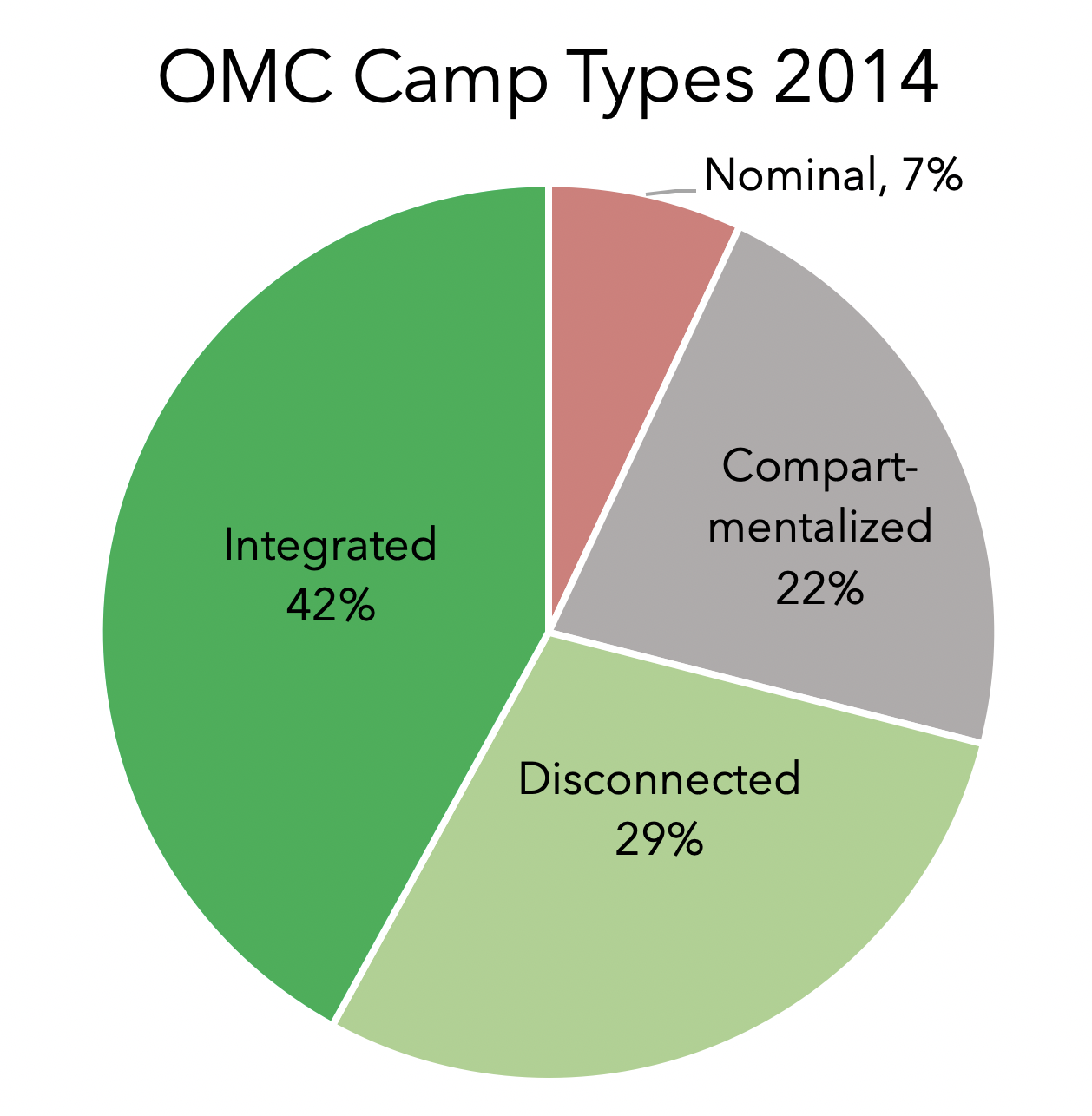1. Nominally Christian Camps: camps with a weak connection to congregations/denominations and a low faith emphasis. Only 7% of camps fall into this category. They look very different from other Mainline camps and probably resemble secular camps to a large degree. They still may have worship, prayers, and even Bible study, though much less frequently than other camps. Faith practices are compartmentalized from other aspects of camp life.
2. Compartmentalized Camps: camps with a moderate connection to congregations/denominations and a moderate faith emphasis. 22% of camps fall into this category. These camps do not show particularly strong connection to other ministries or particularly strong faith emphasis. Faith teachings and Christian practices are part of the camp program, but they are not given noticeably more emphasis than other aspects. Religion or, more often, “spirituality” is seen as an important piece of camp life, but it does not necessarily permeate all aspects of the program.
3. Disconnected Camps: camps with a weak connection to congregations/denominations and a high faith emphasis. 29% of camps fall into this category. These camps are committed to faith formation, and Christianity permeates all aspects of camp programs. However, they deemphasize theological teachings specific to their denomination, and they have generally weak connections to congregational ministries. Camp directors are unlikely to have formal theological instruction, and clergy involvement is likely very low. The large number of camps fitting into this category is alarming because the camp experience does not stand alone as a singular life event. This category is a sign that the partnership between camps and congregations is weakening.
4. Integrated Camps: camps with a strong connection to congregations/denominations and a high faith emphasis. 42% of camps fall into this category. These camps exhibit high clergy involvement and strong connection to congregations in terms of philosophy and program. They appear to be strong partners in ministry with congregations and denominational leaders. They tend to emphasize Christian education and specific theological teachings/practices more so than the other camps. These camps most closely resemble the historical priorities of Christian camping ministry in the Protestant tradition. They see themselves as part of a larger ecology of faith formation, and they intentionally try to strengthen partnerships with other ministries.
The Christian camp, conference, or retreat experience does not stand on its own! It is necessarily part of a much larger ecology of faith formation. Denominational differences among camps are not always helpful distinctions. A disconnected Lutheran camp may not look Lutheran at all, though it may share many of the ministry priorities of a disconnected Episcopal camp. Understanding where our camps fall in terms of these 4 categories can help us understand their strengths and weaknesses. It can also help us make distinctions when we are talking about Christian camping ministry. Some clergy members, theologians, or parents level critiques at camping ministry as a whole because they are lumping all camps together. People base their assumptions on their experiences. There are clergy members who do not want to support camp and retreat ministries because they have experienced mostly nominally Christian or disconnected camps. We can tell a more complete story of Christian camping ministry. We can also seek greater connections between camps and congregations. I firmly believe that these connections are vital to the future of both camps and congregations, and I would love to see many more of our camps shift to the integrated piece of the pie.
Where does your camp fit into the mix?


what exactly is a youth leadership retreat?
camps near tulsa